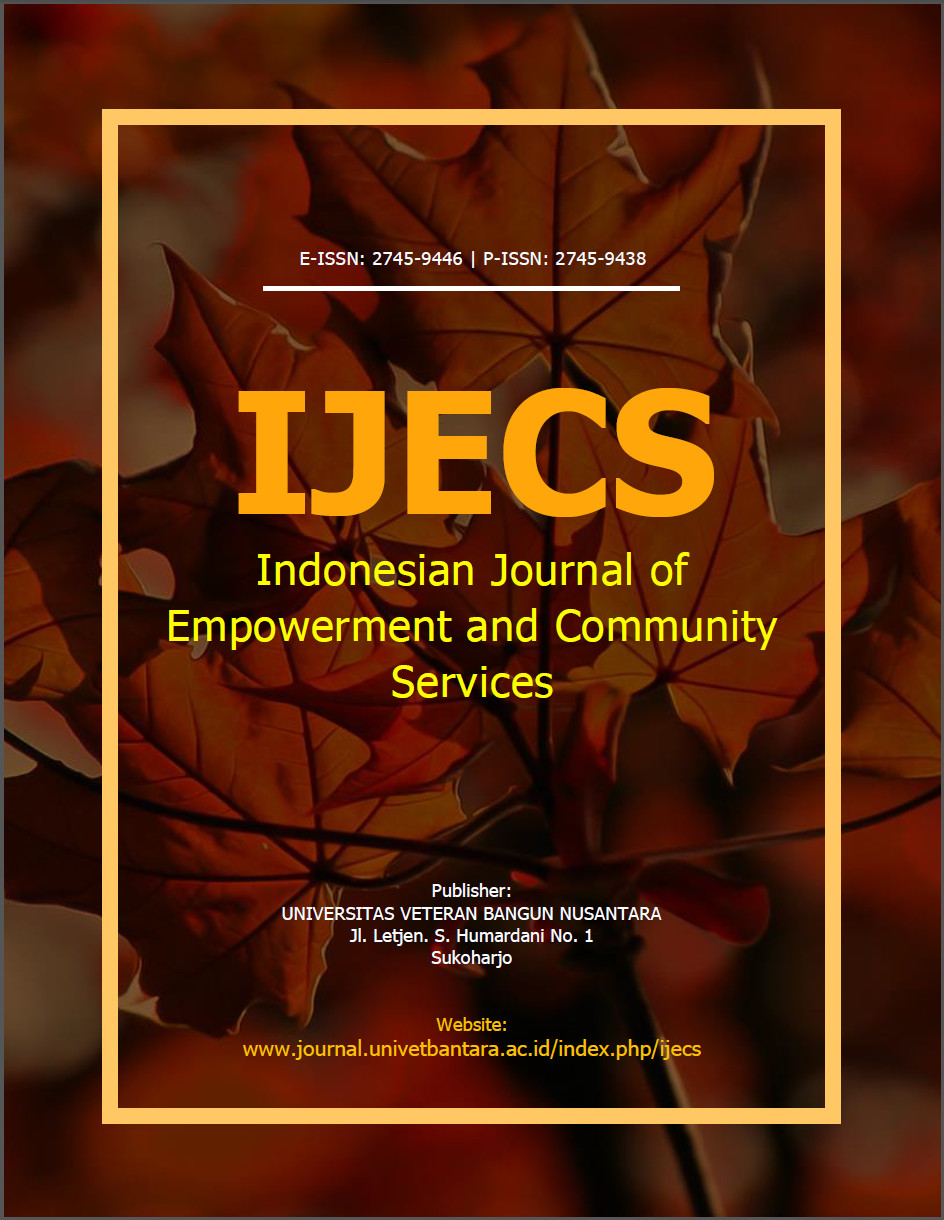Peer Health Educator for Escalating Adolescent Health Education Based On Mobile Health
Abstract
Adolescents are vulnerable to physical and mental health problems. Lack of health information makes adolescents influenced by misinformation, which can trigger detrimental things. Main issues of this topic are lack of information about adolescent nutrition and mental health, unbalanced food consumption patterns, negative stigma related to adolescent mental health, and lack of use of mobile health. These problems caused by limited access to health information and absence of health educators in schools. The solution offered were education and training on adolescent nutrition and mental health. This activity aimed to improve knowledge and skills of adolescent with mobile health-based health education. Community service activities are carried out through peer health educator training, adolescent nutrition education, mental health education, and training of mobile health applications. The implementation method was carried out with preparation, socialization, training and application of technology, evaluation, and program sustainability planning. Results showed an increase in knowledge from an average pretest of 45,19 to a posttest of 87,51. Participants were skilled in using digital health-based applications for adolescent nutrition and mental health. In addition, peer health educator training demonstrated efficient health communication skills. Recommendations for sustainability were school management collaborate with Baki Health Center to held education for other adolescent health topics and optimize school health unit.
Downloads
Downloads
Published
How to Cite
Issue
Section
License
Copyright (c) 2025 Rika Andriani, Julia Pertiwi, Syefira Ayudia Johar

This work is licensed under a Creative Commons Attribution-ShareAlike 4.0 International License.
Authors who publish with the IJECS: Indonesian Journal of Empowerment and Community Services agree to the following terms:
- Authors retain copyright and grant the journal the right of first publication with the work simultaneously licensed under a Creative Commons Attribution License (CC BY-SA 4.0) that allows others to share the work with an acknowledgment of the work's authorship and initial publication in this journal.
- Authors are able to enter into separate, additional contractual arrangements for the non-exclusive distribution of the journal's published version of the work (e.g., post it to an institutional repository or publish it in a book), with an acknowledgment of its initial publication in this journal.
- Authors are permitted and encouraged to post their work online (e.g., in institutional repositories or on their website) prior to and during the submission process, as it can lead to productive exchanges, as well as earlier and greater citation of published work.





